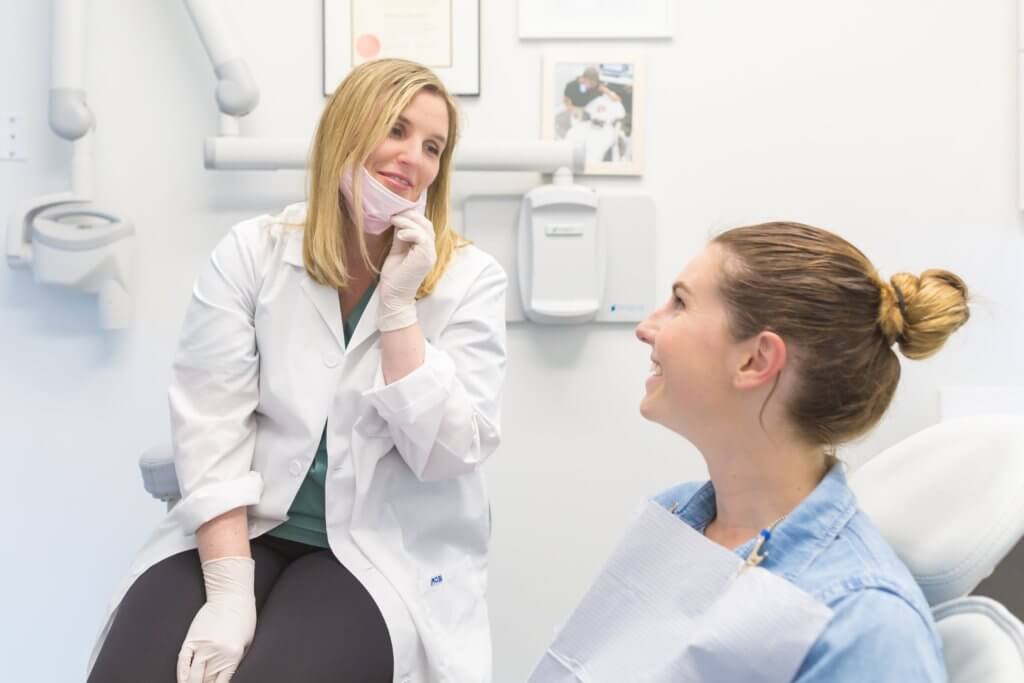Frequently Asked Questions

What Is Dentistry?
Dentistry is the treatment and prevention of disorders and diseases of a patient’s teeth, gums, mouth, and jaw. Dentistry performed properly is necessary for complete oral health and it has a significant impact on the health of a patient’s entire body.
Do I Need to See a Dentist Even If My Teeth Feel Fine?
It’s very important to schedule regular cleanings here at Prairie Lakes Family Dentistry. Dr. Heezen recommends coming in twice a year. Not all dental problems have obvious symptoms at first. Not only can we identify problems before they become a painful and expensive, we can also help to keep your smile looking fantastic. We know how important it is to feel comfortable with your smile. This is why we offer many treatments to help improve patient aesthetics.
What’s a Dental Cleaning Like at Prairie Lakes Family Dentistry?
At Prairie Lakes Family Dentistry, an appointment will include a full oral examination, oral cancer exam, professional X-rays to catch cavities, and a full cleaning by our amazing hygienists. Your cleaning will remove tartar, debris, and plaque from your mouth.
Dr. Heezen will coordinate with your hygienist and recommend a treatment plan for any problems that are found. We’ll also recommend any aesthetic and cosmetic treatments to improve your smile. Please call our office a (507) 212-0002 to schedule an appointment or for any additional questions.
At What Age Should I Bring My Child to See the Dentist?
Professionals throughout the dental industry as well as the American Academy of Pediatric Dentistry (AAPD) agree that a child’s first dental appointment should happen as early as six months of age. This is when the first baby teeth usually begin to sho w and gets children used to visiting the dentist. Dr. Heezen will be able to examine the health of your child’s first few teeth and make recommendations.
When Should I Change My Toothbrush?
Dr. Heezen recommends at least every three months or when the bristles start to fray. If you’re using an electronic toothbrush, make sure to check the recommendation of the type of toothbrush because you may not have to change the head of the brush as often. If a patient has gum disease, Dr. Heezen recommends changing toothbrushes more often. Also, after brushing, it’s very important to wash and rinse your brush out with hot water, then store it upright somewhere it can dry between uses. This will kill germs and bacteria and keep your toothbrush clean.
How Do I Know If I Have Gum Disease?
Gum disease is also called periodontal disease. Plaque and bacteria builds up in a patient’s mouth. When this buildup is not treated in early stages, it can result in gum disease. Risk factors that increase a person’s susceptibility to gum disease include smoking or chewing tobacco, teeth grinding, certain medications, and genetics. Advanced forms of periodontal disease can cause permanent damage in the form of bone and tooth loss. Dr. Heezen recommends brushing and flossing every day as well as scheduling dental appointments every six months as the best way to fight gum disease. Some of the most common signs of periodontal disease are the following:
- Abscessed teeth
- Extreme tooth sensitivity
- Chronic bad breath
- Loose teeth and/or loss of teeth
- Red, swollen, or bleeding gums
- Receding gumline
If you are experiencing any of these symptoms, please call us as soon as possible. You can reach us at (507) 212-0002 or email us to schedule a consultation. Your dental health is our highest concern.

